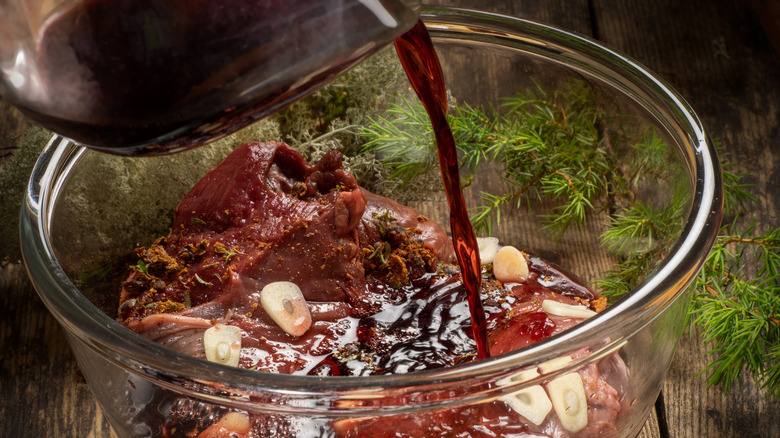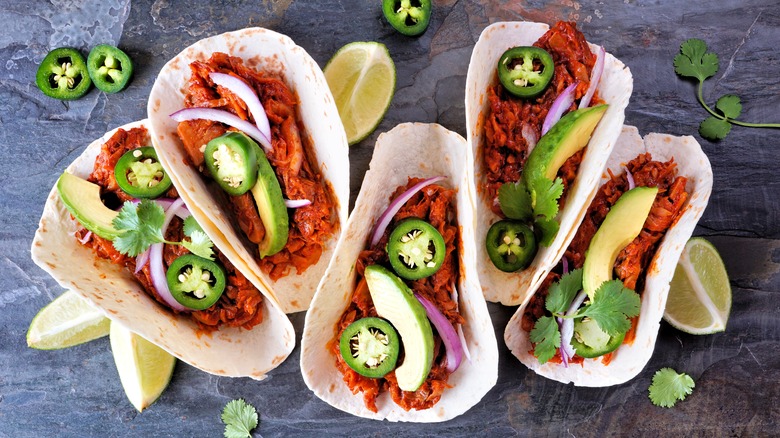The Difference Between Marinating Regular Meat Vs Plant-Based
One of the main virtues of plant-based meat products is their similarity to their animal-based counterparts in both texture and flavor. When it comes time to prepare them, however, the two categories can differ quite a bit. Plant-based hamburger patties, for instance, tend to cook one to two minutes faster on each side than beef patties. Another difference has to do with marinades.
While both plant-based and regular meat can benefit greatly from soaking in a bath of liquids and aromatics prior to cooking (Dr. Pepper steak, anyone?), only marinades used for plant-based meat can be reused for up to three days when kept in the fridge. The same can't be said for leftover marinade used to season raw animal meat, which may contain potentially harmful bacteria and must be discarded. For those who hate food waste, the idea of saving extra marinade might be reason enough to pick up some plant-based meat products at the grocery store.
Less waste with plant-based
There are several science-y reasons why plant-based meat products are similar in texture to animal meat. One of them is protein content. While most plant-based meats don't contain the essential amino acid that helps the body "synthesize new proteins," as Kansas City Chiefs dietician Leslie Bonci explained to Inverse, many brands do contain isolated strands of soy and pea protein, which is what gives your plant-based patty the toothsomeness of a classic burger. Those proteins are also the reason why plant-based meats love a good marinade.
As with real meat, marinades add tons of flavor to protein-dense plant-based meat. Moreover, they also help penetrate those proteins and keep the meat tender and juicy throughout the cooking process. There are countless ways to approach a marinade, but when in doubt, keep it simple. A basic version will serve you well if you plan to use it for multiple plant-based dishes throughout the week.
Acid, fat, and flavor
If your goal is to tenderize meat (plant-based or otherwise), your marinade should include an acidic ingredient such as vinegar, lemon juice, wine, or fruit juice, all of which contain enzymes that help break down tough protein. From there, it's all about the fat and the flavor: oil, spices (not including the requisite pinch of salt), aromatics, and sauces provide plenty of room for experimentation.
For example, you could use Japanese flavors as inspiration by making a marinade of oil, soy sauce, mirin, rice vinegar, and finely sliced green onion. Or, for an Italian take, you could mix red wine with balsamic vinegar, olive oil, garlic, and your favorite woody herbs like rosemary and thyme. Whatever you do, just be sure to taste your marinade before you drop in your meat and make adjustments as needed. Beyond Meat suggests letting plant-based meat marinate for at least 30 minutes, or overnight.
Hot tip: If you don't want to make the same dinner multiple nights in one week, consider using the leftover marinade with tofu or your favorite vegetables.


